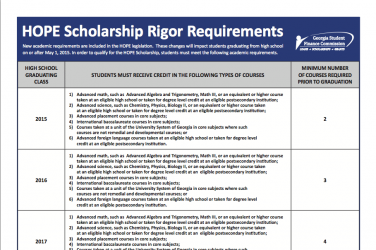
After forming in the Atlantic Monday night, Tropical Storm Theta became the 29th named tropical storm of the season, making 2020 the most active hurricane season on record.
Theta is not expected to make landfall, but the United States’ coastlines aren’t out of the woods yet. Another storm, Tropical Storm Eta, began to make landfall on Florida’s Gulf Coast on the evening of Nov. 11, 2020, bringing heavy rainfall, flash-flooding and tropical-storm-force winds. Eta is expected to weaken as it travels northeast toward the south-most Georgia coastline.
The last storm to make landfall in the United States, Hurricane Zeta, made landfall (and headlines) in southeastern Louisiana on Oct. 28, 2020. Millions were left without power across six states and as many dead. The storm moved abnormally fast, not allowing for wind speeds to decrease as it moved across the states, per the National Weather Service.
Though we are currently seeing an increase in tropical storm activity, research hasn’t concluded that this is a trend we should expect to continue, but the abnormal behavior of these recent storms, the increased severity, is a concern.
According to Yale Climate Connections, the proportion of Category 4 and 5 storms is increasing, meaning a similar amount of storms are occurring each season, but more storms are growing in severity to higher categories than have in the past, with less storms maxing out at Category 1 and 2.
“We conclude that since 1975 there has been a substantial and observable regional and global increase in the proportion of Cat 4-5 hurricanes of 25-30 percent per °C of anthropogenic (human-caused) global warming,” write the authors of a 2013 article published in Climate Dynamics, a scientific journal on “all aspects of the global climate system.”
The Georgia Connection
What does this mean for Georgia? While few hurricanes make their initial, most impactful, landfall on Georgia’s coastline, the state is often in the path of the dwindling tropical storms as they move across states like Florida, Louisiana and Alabama, leaving downed trees, blocked roads and thousands of power outages in their wake.
Hurricanes lose force as they move across land, but when a powerful, high-category hurricane makes landfall, the land between where it initially started and where it’s headed becomes less impactful in slowing and weakening the storm. And with higher category storms occurring more frequently, this allows for stronger-than-usual winds and rains to tear through state after state, leading to increases in damage and death tolls, and decreasing the amount of time before the next storm hits.
With weeks to go before hurricane season officially comes to an end, a 70% chance for another record-breaking 30th named storm has already been provided by the National Hurricane Center, the storm forming south of Puerto Rico.
Kyle Peterson is a senior majoring in journalism, specializing in photojournalism, in the Grady College of Journalism and Mass Communication at the University of Georgia.








Show Comments (0)